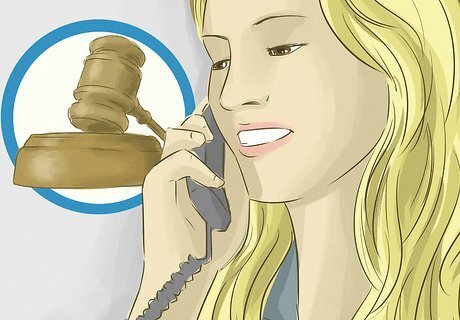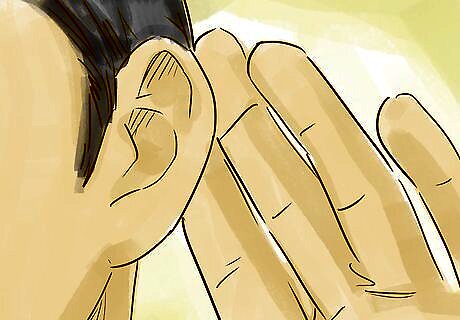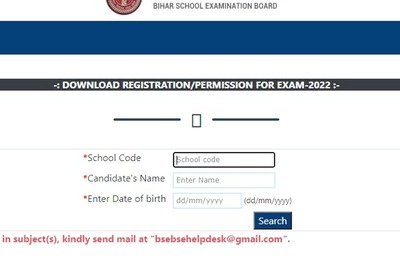
views
Preparing for Jury Duty

Receive your summons. You will receive a letter in the mail telling you the date you must show up to the courthouse. Read the letter carefully and make note of the date.

Postpone if necessary. You probably can postpone your jury service if you have a conflict. Each court accepts requests for postponements in a different way. For example, you will need to call some courts to ask for a postponement whereas other courts will have an online system you can use. For more information, see Postpone Jury Duty.

Fill out the questionnaire. You may have received a questionnaire to fill out and bring with you on the day of jury service. Some courts will request that you mail it back before a certain date. Answer all questions honestly and completely. Each questionnaire is different, but you will typically be asked: your name, address, and place of birth your education employment status (self-employed, unemployed, part-time, retired, etc.) the education and employment status of a domestic partner or spouse your experience with the law, e.g., whether you have ever filed a lawsuit, been arrested, been the victim of a crime, or served as a witness or juror whether anyone in your family has worked in law enforcement, the court system, or in the corrections system

Tell your boss. If you are employed, then you should tell your boss that you have jury duty. You probably will not be paid by your employer for the days you miss work, though you should check your employment contract or employee handbook. Some employers do pay employees. It is against the law in most states for an employer to try to keep you from serving on a jury. You also cannot be disciplined for attending jury service. Be prepared to show your employer a copy of your summons.

Dress appropriately. As a juror, you do not have to dress up in a suit. However, you shouldn’t show up to court in your pajamas, either. Instead, wear something business casual: slacks with a dress shirt or blouse. Do not wear anything too casual. Never wear shorts, crop tops, short skirts, or flip flops. Also, remove all hats (unless you wear one for a religious reason). Make sure to cover up your back, shoulders, and stomach. Avoid see-through clothing. Bring a sweater or jacket to put on in case it gets too cold in the courtroom.

Check the compensation rate. Every court will pay you for each day that you miss work for jury duty. You should check with the court to find out the compensation rate. Compensation varies. In U.S. federal court, you will be paid $40 a day, or $50 a day after 10 days of service. In state courts, the pay rate varies widely. For example, in Alabama you will make $10 a day, whereas in North Dakota you earn $50 a day.
Getting Selected for the Jury

Arrive at the courthouse early. You will need to find parking and go through security. You will then be directed to the appropriate room for jurors. You should leave your cell phone in the car. Otherwise, turn it off before you enter the courthouse. You should not be scrolling through text messages as you sit in court.

Watch a video. You will probably be shown a video on what to expect, titled “Welcome to Jury Duty” or something similar. You do not have to take notes. The video is meant to get you comfortable.

Go into the courtroom. In the United States, you will undergo a process called “voir dire.” Jurors will be sent to a courtroom where the defendant and the attorneys are already waiting. The judge will then call up panels of 12-14 jurors to sit in the jury box and be asked questions by the judge and the attorneys. In England, things may happen differently. Instead of being asked questions, you will simply be selected by the clerk and told which courtroom to report to. You should bring a book to read, as you may not be selected for the first trial. Nevertheless, you have to wait around because you might be selected later.

Answer questions. At random, the judge will call up a panel of jurors to sit in the jury box to be asked questions. The judge will ask you if you can be fair and impartial to both parties. The lawyers may also have questions. It is hard to know in advance what lawyers will ask, but you should always answer honestly. The questions should not be too personal. The judge will also look at the answers to your questionnaire and ask follow-up questions. For example, if you have been the victim of a crime, then the judge might ask if you harbor bad feelings toward all criminal defendants. Speak loudly when answering the questions. A court reporter will be taking down the questions and answers. You can try to get out of jury service by telling the judge that you cannot serve, but at this point, it will be difficult. If you need to postpone your jury service, you should have requested postponement before the day of your jury duty.

Listen to the trial. Based on your answers during “voir dire,” the attorneys will decide whether or not to strike you. If both sides allow you to remain, then you will be part of the jury unless the judge thinks you cannot be fair. The trial may start immediately after the entire jury is selected, or you may have a brief break. Before the attorneys begin their opening statements, you will raise your right hand and take an oath to promise to impartially weigh the evidence.

Follow the judge’s instructions. The judge will inform you of what you can and cannot do during your breaks. Typically, you will be prohibited from talking about the case and from doing any independent research. You should follow the judge’s directions. If you fail to follow the directions, then you might be kicked off the jury and be replaced by an alternate.




















Comments
0 comment